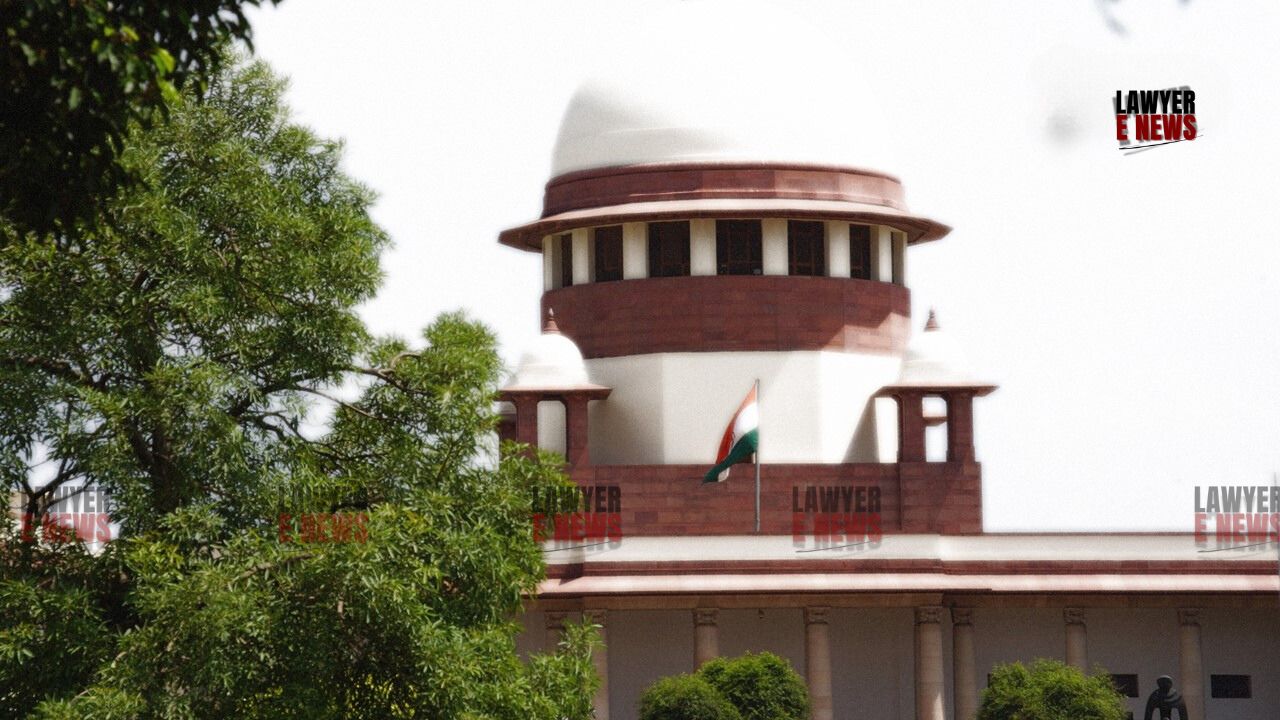-
by Admin
15 February 2026 5:35 AM



Supreme Court of India quashing the proceedings against the appellant, Irfan Khan, who had been charged under Sections 25, 54, and 59 of the Arms Act, 1959. The Court found that the charges against him for the possession of a buttondar knife did not meet the necessary legal criteria, particularly under the Delhi Administration Notification (DAD Notification) of 1980.
Irfan Khan was arrested on July 9, 2022, after being found acting suspiciously in the Pravasi Park area of New Delhi. A buttondar knife was recovered from his possession during a search. The knife, with a blade length of 14.5 cm and a total length of 31.5 cm, was seized, and Khan was charged under various provisions of the Arms Act, based on the recovery of this weapon.
Khan approached the Delhi High Court seeking the quashing of the FIR and charge-sheet, but his petition was dismissed. He then appealed to the Supreme Court, arguing that his possession of the knife did not constitute an offence under the Arms Act as per the relevant rules.
The central issue was whether the knife in question, which did not meet the size specifications outlined in the Arms Act and the Arms Rules, could be prosecuted under the DAD Notification of 1980. This notification governs knives with blades longer than 7.62 cm and broader than 1.72 cm, and the notification only applies when such knives are intended for manufacture, sale, or possession for sale or for testing purposes.
The Court acknowledged that the recovered knife’s dimensions were smaller than those required to bring it under the purview of the Arms Act or Arms Rules. While the knife's blade length exceeded the 9-inch (22.86 cm) limit of the Arms Rules, it was still smaller than the 7.62 cm threshold mandated by the DAD Notification for knives subject to regulation under the Arms Act.
The Supreme Court noted that there was no evidence in the charge-sheet to suggest that the appellant's possession of the knife was for any of the prohibited purposes outlined in the DAD Notification, i.e., for manufacture, sale, or testing. The notification only criminalizes possession for these specified purposes, and no such intent was established in Khan's case.
“The charge-sheet does not indicate that the knife was possessed for ‘manufacture, sale or possession for sale or for test.’”
The prosecution’s case failed to establish that Khan's possession of the knife violated the DAD Notification. The Court pointed out that the allegations against him were limited to the mere possession of the knife, with no evidence indicating an intent to sell, manufacture, or test it, as required by law.
The Court concluded that the prosecution's case lacked the necessary ingredients for a valid charge under the Arms Act. The appellant's possession of the knife, as described, did not violate any relevant provisions, especially considering the lack of allegations or evidence that the knife was possessed for prohibited purposes.
As a result, the Court quashed the FIR, charge-sheet, and all subsequent proceedings against Irfan Khan, stating that continuing with the trial would be an abuse of process.
This judgment underscores the necessity of establishing all required elements before prosecuting someone under the Arms Act and Arms Rules, particularly with respect to the specific legal requirements for possession of sharp-edged weapons. The ruling also highlights the importance of clear, evidentiary support in criminal cases, ensuring that charges are not pursued without substantiating facts.
Date of Decision: December 3, 2024
